Sustainable Team Building: A Day of Bonding, Learning, and Making an Impact
“Every job is a sustainable job now,” they say in the green community. Meaning that each of us has the power to align our work and lives with nature and the planet.
Recently, our team at the Innovation Hub held a strategic work session followed by team building. We decided to make it more than just sustainable—we wanted it to be genuinely beneficial for the environment.
My name is Irina Zeleneva, I’m a Content Manager at Semrush and an environmental enthusiast. In this blog post, I will walk you through how we did it, step by step.
Step 1: Planning & Activity Selection
Our team of 13 was on a hunt for an activity that needed to:
- Strengthen our bonds and encourage teamwork
- Benefit the planet or teach us how to live a more sustainable life
- Be achievable in just a few hours
As we narrowed down the options, two activities seemed to tick all the boxes.
1. Insect Hotel
Perhaps you've never heard of them, and neither have we… But after careful research, we realized that building insect hotels guided by Bricoteca was a perfect fit for us.
Essentially, an insect hotel is a structure made from natural materials that attracts and shelters pollinators like bees, ladybugs, and butterflies.
It might not sound as ambitious as saving tigers or bathing elephants, but insect hotels present a valuable contribution to our planet. After all, insects are essential for pollination and pest control, helping keep our ecosystem in balance.
Those who are afraid of insects shouldn’t worry—the guests check in later! :) And anyone who's not handy with tools (which was almost all of us, and that’s okay, too) will get a quick “how to” intro.
2. Eco-Friendly Cooking
Of course, food brings people together—in many cultures, sharing food signifies trust and safety.
The simplest way to make your diet healthier while also helping the world is by incorporating more plant-based meals. Even just reducing meat consumption can make a difference. Since our gathering took place in Catalonia, we chose a course of vegan Catalan cuisine at InBloom Cooking School.
Step 2: The Experience Itself
We started the day as usual, but instead of heading to the office, we met at the carpentry workshop of Bricoteca. Finishing our morning coffee, we put on aprons, laughing:
“Oh, we’re building a Hilton!”
“Ours will have a gym!”
First, we got hands-on with the tools, and then came the creative part—using our new skills, each of us crafted a truly unique hotel. We only had salvaged materials at our disposal, ensuring that no new lumber was used in the process. And yes, one of the hotels did indeed have a gym!
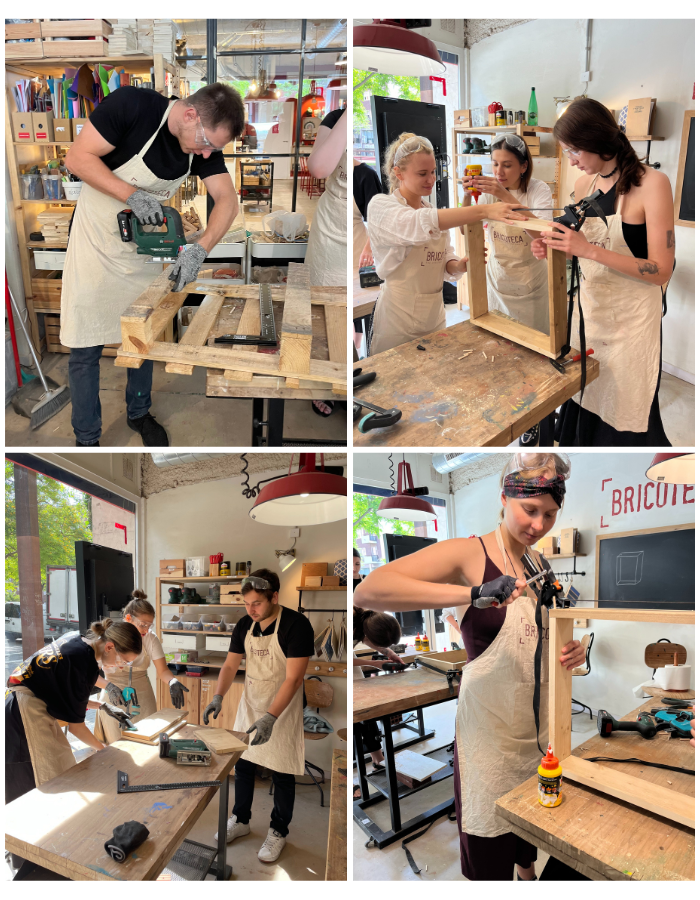
After a short break, it was time for part two—the cooking workshop!
The goal wasn’t to convert everyone to veganism, but rather to offer more options. Learning how to cook delicious veggie dishes and trying soy meat as a nearly indistinguishable alternative to beef or chicken was eye-opening.
During the cooking class, we prepared eight different dishes, from cannelloni with béchamel sauce to fideuà with artichokes, asparagus, and aioli, and afterwards, enjoyed tasting our dishes as we shared memories of the day over dinner.
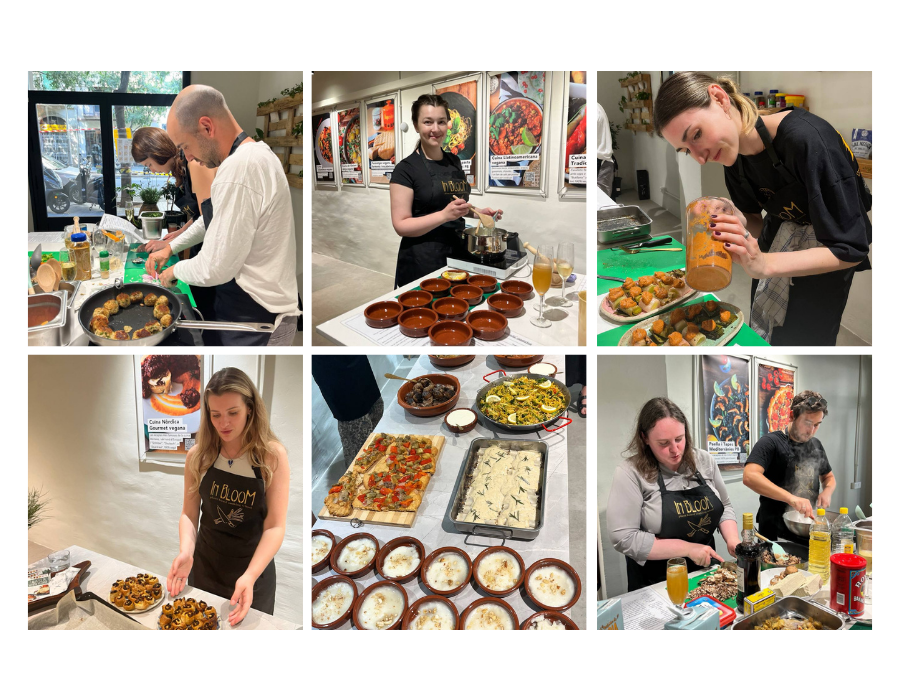
Most of us aren’t vegans, but we had curiosity and open minds—and that’s the key to success. I can’t help but think that this craving for trying new things and experiments is reflected in our approach to work, too. No wonder we’re the Innovation Hub team! :)
On top of everything, it was just fantastic to see how this activity revealed hidden talents among us—turns out we have some amazing chefs on the team, with Michelin-level kitchens at home. Truly inspiring!
Step 3: Making an Impact
In any activity, it’s important to have a sense of purpose. Why are you doing what you’re doing?
The story didn’t end with our team building day. We passed on our insect hotels to the Institut Bernat el Ferrer de Molins de Rei in Barcelona and the Depana eco-organization.
The Institute will use two of our insect hotels in their course. Students participating in garden activities will add reeds and more pine cones for a stronger scent that attracts insects and set up logs for support.
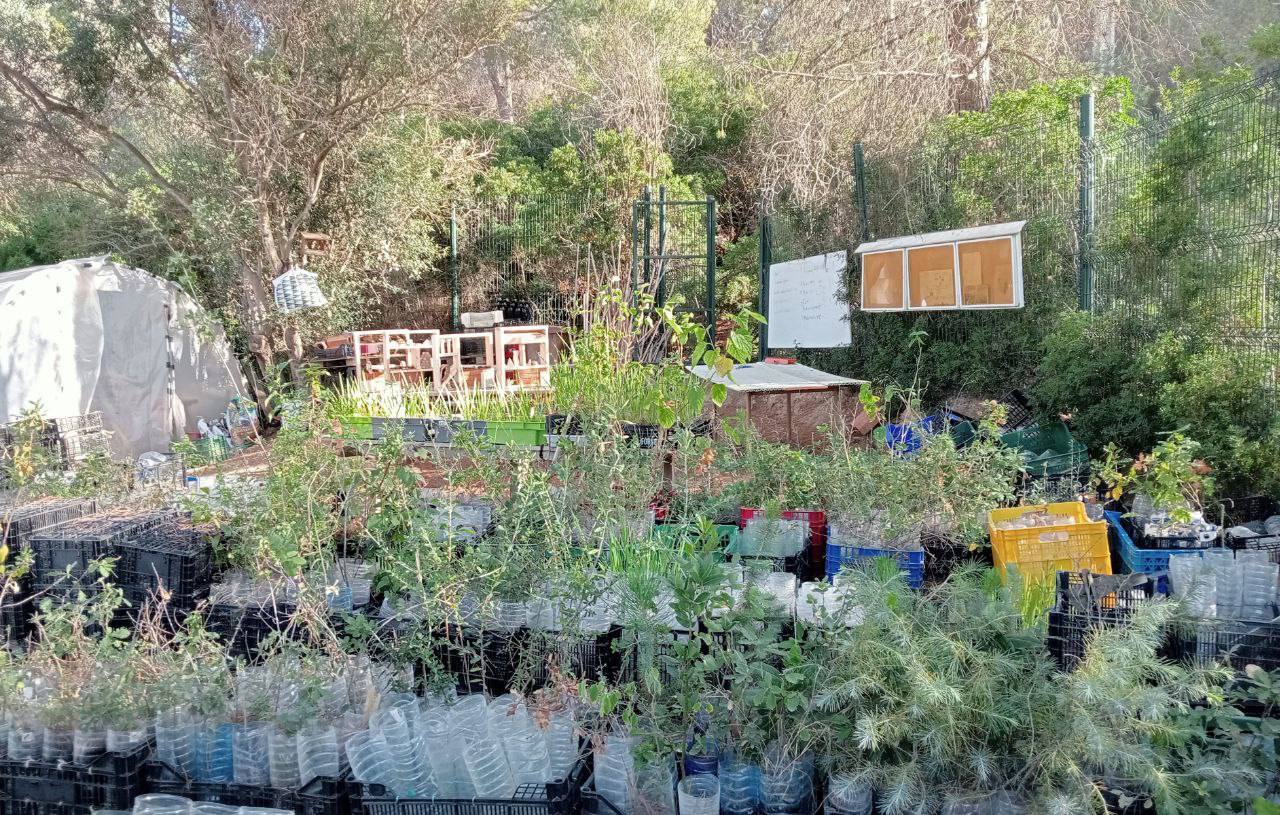
The other two hotels will go to plots in Gavà for a rewilding project by Depana. They plant species native to the area, and insect hotels will attract insects that aid in pollination, pest control, and maintaining a healthy ecosystem.
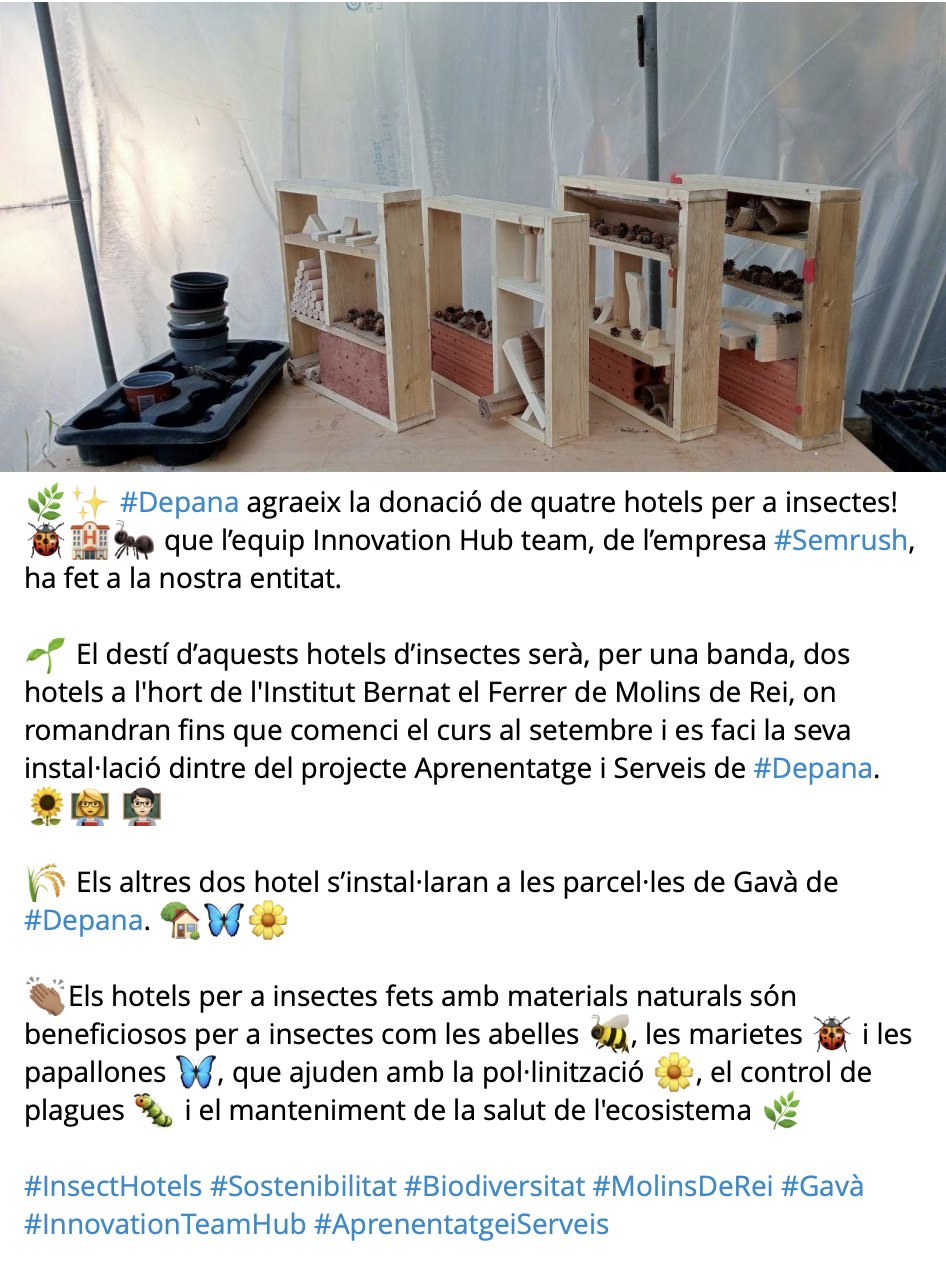
The gratitude we received from Depana and the Institute made the team feel that our efforts truly mattered.
Moreover, in just one day, we achieved our main goal: we strengthened the bond with the team, maintained our flexible and open-minded approach to learning, and gained new skills for sustainable and impactful living that will continue to benefit both us and our planet every day.
The event was successful among colleagues, too. This is just a small sample of all the feedback we received:
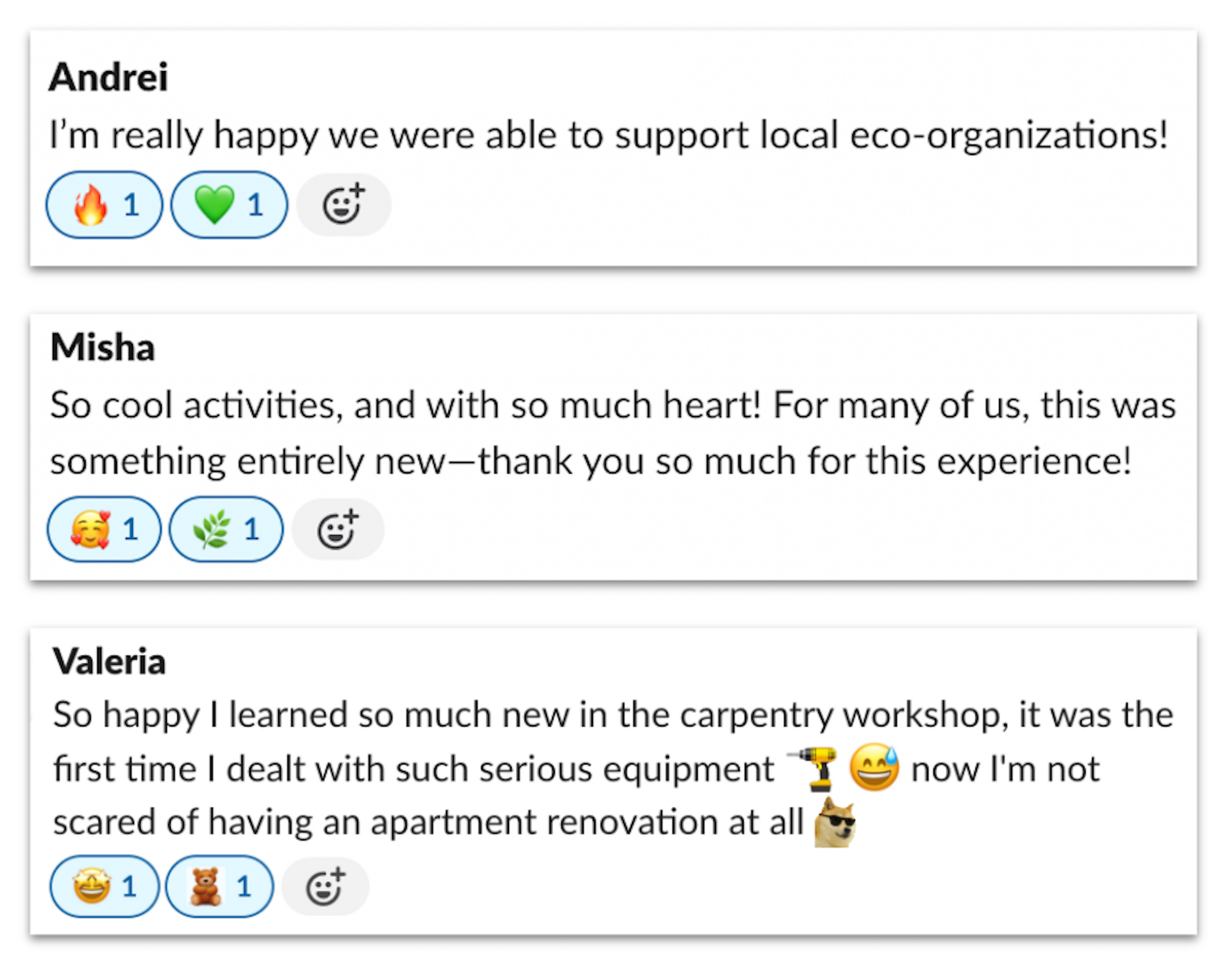
Still wondering if sustainable team building is right for you? Go for it! Create meaningful connections, contribute to a better planet, and have fun doing it. 'Every job is a sustainable job now.' 😉